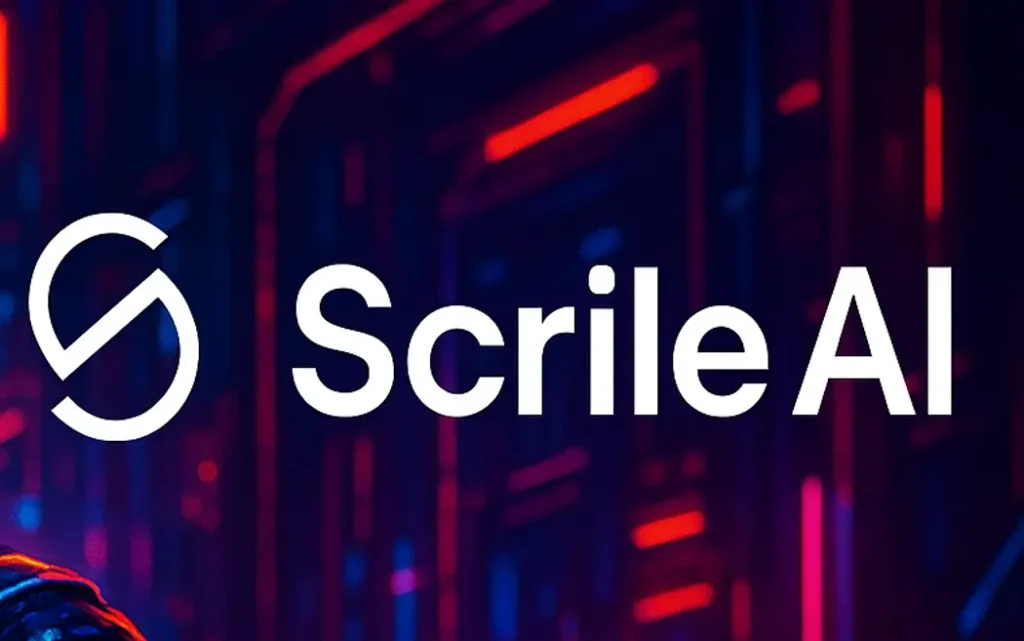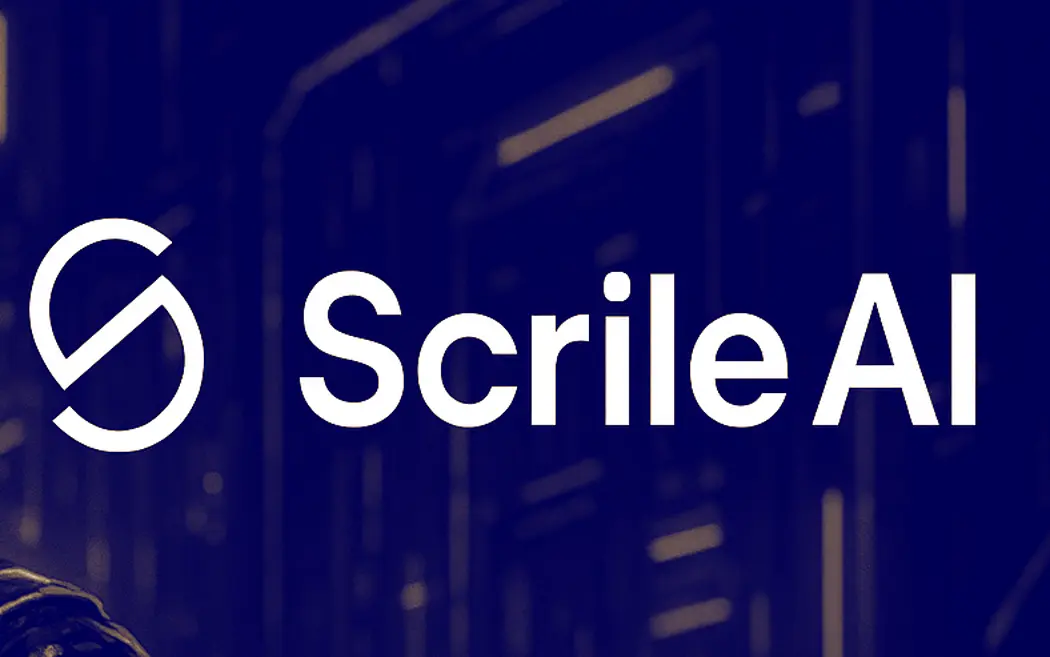Christian AI: Insights for 2026
Discover the welcomed impact of Christian AI on faith in 2026. With advanced technology enhancing disciple-making initiatives—from AI prayer bots to sermon helpers to online instruments that are allowing us to connect better and grow our reach—technology is enhancing relationships and the growth potential of ministry.

Christian AI
Christian AI and the New Frontier of Faith
The relationship between technology and religion, and especially Christianity, is complicated. The invention of the printing press challenged our concept of the sharing of the Bible, the invention of radios brought sermons into our living rooms, and livestreaming allowed us to worship together as transnational communities. And now, Christian AI is arriving on the scene—and it’s changing the landscape of what faith looks like in the digital world.
Christians and AI
For many Christians the shift is exhilarating and unnerving. On the one hand, an AI can analyze sacred scripture in seconds and help pastors with sermon writing. The AI can even remind churchgoers when to pray. On the other hand, many Christians express discomfort with trusting machine authority to assist them in matters of faith—like there is something sacred about these discussions that should not be lost in technology. This tension is where the conversation about Christians and AI begins.
We are witnessing the emergence of a new form of ministry that is based on digital intelligence while also keeping human compassion and social connection central to the work. One way to think about AI is as a digital tool that supplements—but does not replace—the human voice of faith.
Moreover, the rise of AI Christianity invites us to rethink what it means to connect with God and with one another. Can a digital assistant be meaningful in encouraging spiritual reflection? Can an algorithm inspire spiritual faith in the same way that a sermon can? This is what believers are now wrestling with, and it is transforming how ministries, communities, and individuals are navigating engagement with technology.
What we can clarify is that Christian AI is not a fad. It is one continuum in the continuum of faith and innovation. And like every change before this, it brings with it opportunity for wisdom, balance, and dialogue with regard to healthy engagement.
How AI Is Used in Religious Practices

Artificial intelligence is not just for tech companies or data scientists anymore—it is alerting permeation into a spiritual space. From access to sermon preparations to daily devotionals, AI is reshaping the ways faith is exercised and expressed. Churches, ministries, and individual believers are discovering ways in which this technology can do more than be just a productivity tool but can be a bridge to deeper connection and understanding.
Let’s explore the role of artificial intelligence in the worshiping context of sermons and preparation, prayers, devotions, outreach, and translation.
Worship and Sermon Preparation
One of the greatest workloads that many pastors experience is the hours loaded with scriptural cross-referencing, sermon teachings, and sermon-outline preparation. Various AI tools you can download from your app store and perform most of this research when asked, fully analyzing biblical text, recurring themes within that text, scriptures that are related, and even sermon outlining. Rather than using AI to replace the pastoring or spiritual perspective of a pastor in developing a spiritual message, AI can minimize the time spent on logistics and scheduling messages to allow for thinking, ideas, and contemplation prior to preaching.
Prayer, Daily Devotions, and Chatbots
The use of AI chatbots has developed a new layer of digital companionship around daily encouragement to believers within their faith journeys. Some of these apps suggest a prayer starter, pre-studied devotions, and even offer a learning pattern associated with praying. And this may feel strange to you, but we know personally; we use these reminders just to come back to a little feel-good right. The point here is not that the technology replaces some of the gaps of prayer. In fact, it is to share a little reminder toward prayer or devotions.
Study, Outreach, and Translation
AI’s role in faith is also huge in terms of taking faith across borders. Including creating translation models that can deliver the sermons, commentary, and scriptures in nearly all forms of living languages instantly. That is probably more revolutionary than anything else for our population. However, AI analytics also determine what religious messages are engaging more, so they can help your outreach pick the best fits. Small churches that have been burdened by not reaching their reach are finding communities across the globe able to engage for a relatively small cost to use the same technologies that engage the major companies of our society.
These examples are each woven collectively together; together AI is weaving itself into the modern practice of faith. From sermon support to translation to a spiritual companion, AI is finding new approaches to connect with believers while carrying through the same forms of complexion that make faith relational being.
Summing Up: The Role of Artificial Intelligence
| Worship and sermon preparation | AI tools can analyze any Bible text, look for repeated themes, and curate similar scripture or sermon outlines to that specific text of interest. |
| Prayer, daily devotions, and chatbots | AI chatbots also provide another dimension of digital companionship to your daily faith journey. These kinds of resources can give users prayer recommendations, devotional recommendations, and customized encouragements that can help them to build their own relationship with Christ or be more consistent in prayer and study. |
| Study, outreach, and translation | AI is revolutionizing faith outreach around the globe. With translation models, we can instantly deliver sermons, commentaries, and scriptures in almost every language—breaking barriers like never before. |
Christian Views on Technology and Ethical Issues

As technology continues to slip into the rhythm of our daily lives, as you would expect, it raises theological questions for believers. Technology has been both positive and negative. It just depends on how it has been used. Technology can be used for good or for evil. This can be true for AI. When we talk about AI and Christianity, it is about the values and purpose; suffice it to say, ‘Who can I trust?’.
Theology of Technology
Historically, as a theological framework, Christianity has always taught that human originality is a reflection of the divine image. We can create, build, imagine, and innovate because God does. If you look through Christian history, the church has always jumped on tools that could help them spread the Gospel faster. The printed press, radio, the Internet, and, you could argue, AI. If you thought of it through that lens, it is just the next step. It is a tool of creation, but it can be used for good—if used responsibly. Good stewardship is a key aspect of all technology—being a good steward, an ethical steward, and a steward that honors truth and human dignity.
Ethical Issues of and Around AI
The reality is AI is fraught with moral and spiritual dilemmas. Can we trust a machine to provide messages about faith? When we develop AI that will imitate empathy or prayer, to what level does it or does it not cognitively understand it? The fears of believers are that a period of allowing AI to act as an instrument of reflection or as a guide may lead to shallow spirituality or possibly, depending on AI output, deception.
Tension around issues of privacy and discernment is important for religious leaders to hold for the good of the sacred.
Is Using AI a Sin?
The question “Is using AI a sin?” surfaces often, especially among those uneasy about its growing influence. The short answer is, “No, it is not sinful to use technology.” The books of Scripture do not condemn a particular tool. They do caution against the way the tool is applied. Sin holds no place in the tool when its use is for the purpose of God rather than taking the place of God. It is only when a believer substitutes prayer or seeking God’s wisdom for a dependence on artificial intelligence that a danger lies. But if artificial intelligence is utilized humbly and accordingly. It will serve as a great assistant for learning purposes, connecting us with people, sharing, or serving evangelistic purposes.
The reality is that AI and Christianity are not at war with each other. The challenge is to keep technology as a servant, not as a master. The challenge is not about discarding technology. It is about exploring our stewardship of technology. Faith and innovation, when cultivated by conviction, compassion, and critical thinking, can coexist.
Examples of Applications: Prayers, Sermons, and Chatbots

In only a few years, artificial intelligence has gone from an abstract idea to a daily ally for believers. From churches and ministries to personal devotional apps, Christian AI is being utilized as a platform to experience faith creatively and inspiringly. In fact, these particular innovations are not intended to replace faith but to express it more fully.
Prayer Bots and Virtual Companions
Think about your experience opening an app that directs you to pray, invites you to reflect on a verse, and allows you to share your thoughts with God. Today, AI-driven prayer bots are familiar companions of prayer that remind people. These tools utilize natural language understanding and dialogue systems for people who find it challenging to articulate their thoughts in prayer, record gratitude lists, and be of comfort in the struggles of life. Some AI tools even generate Christian scriptures based on a person’s emotional state. For many, these digital accompaniments function as a daily partner to guide Christians through devotion homework.
Of course, these tools do not replace the sacred intimacy of private offers of prayer. Each of these also functions only as gentle nudges for busy believers who might consider structure or need their conscience focused on devotion. Younger generations, particularly, are so accustomed to digital interaction that a simple option to connect to an AI will entice a brief return to deeper faith.
AI-Assisted Sermon Tools
Once the pastor or church leader senses their distinct convention of prayer, it can take dozens of hours to prepare the sermon. AI tools now provide assistance with researching the theme of the sermon, suggested verse, and a possible outline. AI-assisted conversation tools allow the user to train and sample and even develop illustrative stories from theological texts. The heavy work being outsourced to AI does not replace the message in any way from the human inspiration and discernment process for the spoken word. Consider these tools to be a breezy companion to enhance the construction processes of a sermon.
As an extension of preparing the sermon, churches can begin immediately using AI to assist in creating slides, transcribing recordings, or simply captioning the live stream in real time. AI will quickly assist worship with new accessibility levels for people with features or hearings, including religious deaf and second-language individuals.
Chatbots in Ministry and Outreach
From church websites to ministry applications, AI chatbots that tackle questions of faith, provide details on events, or offer spiritual advice options are powered by AI and are an available service 24/7. This tool can be particularly harnessed to assist newcomers who might be nervous to contact the pastor directly. For example, a first-time visitor might message, “How can I start reading the Bible?” and, without hesitation, receive a helpful and kind-enough message pointing them to the right resource.
From digital prayer partners to sermon assistance and ministry automation, these are just a few examples of how Christians and AI are discovering ways to work in synergy. Faith and technology are both learning to coexist while enhancing the faith walk for both the believer and the interest or outreach they proclaim.
Create Your Own AI Service for Spiritual Support

Today’s AI platforms will allow you to think creatively about how to design a custom digital companion for your audience. You will be designing prayer bots, bespoke scripture study guides, or interactive discipleship programs, all without needing advanced technical skills or coding experience. Once your AI service is developed within the right parameters, you could have an AI inspire personalized devotionals, send encouragement messages, or guide the user through their study plan.
Scrile AI: Launch Your Own AI Service

As the world of artificial intelligence continues to expand, not all platforms provide the same ease of use or flexibility. Scrile AI, however, is a great platform for creators, entrepreneurs, and organizations who want to build their own tailored AI service.
Scrile AI allows you to quickly develop, train, deploy, and distribute your own intelligent assistant. Think of it as a workshop to build your own digital companions, advisors, or support bots that can be tailored to your specific needs.
What Makes Scrile AI Unique
With Scrile AI‘s no-code approach, you can begin your idea today, without needing any coding skills. You can even customize an AI’s tone, personality, and intent.
Scrile AI has technical capabilities but also prioritizes services based on personalization and privacy. You still decide how an AI can respond. This is especially relevant if your organization offers spiritual or pastoral care to the people and communities you serve. The personalization of trust and confidentiality is especially relevant.
How Christians Can Use Scrile AI
Just think of having a “digital prayer partner” to support your community, available any time you want. Or what about a scripting study companion to help the believer with historical background, context, and commentaries on the passage? You could even offer a chatbot to guide users through challenges or provide daily encouragement based on scripture and biblical truths.
This flexibility is what makes Scrile AI such a powerful ally for those merging AI and Christianity. It enables anyone to launch tools that bring faith into the digital space responsibly and meaningfully.
So, if you are feeling inspired to consider the possibilities that AI can have for your ministry or online project, we suggest you explore Scrile AI. It’ll be easy to see how easy it will be to create, customize, and deploy your own faith-informed AI service. Start small, with something that serves prayer, study, or community development, and let technology do what it does best!
Scrile AI is not just AI tech; it is a creative bridge between technological innovation and intention. For believers who want to see faith developed in the digital area and culture, that bridge can hold amazing value.
FAQ: Christian AI and Faith

Is there a Christian-based AI?
Indeed—tools such as FaithGPT and others like it are created for the specific purpose of utilizing AI in a faith-based context. These tools utilize advanced algorithms to foster meaningful discussions around faith. They can help the user facilitate spiritual reflections, share data-oriented thoughts on biblical passages, or even create a dialogue-based conversation.
Is it okay for Christians to use AI?
Definitely. AI is not sinful in and of itself; it is all about how it is intended and used. Technology can often be a powerful instrument to accomplish your spiritual journey. You must keep in mind that AI should be a supplement to your faith—not a replacement. As believers, we can happily use these kinds of tools in a responsible way.
How can AI be used in church?
Artificial intelligence has become a tremendous resource for churches today. AI-enabled chatbots can offer personalized, ongoing assistance for any question or issue a guest or member may have. It can save an administrative leader time on workflows, can inspire a pastor with sermon ideas, or can even help compose creative and engaging worship services. Ultimately, it is designed to help churches widen their reach and deepen their community engagement.
Conclusion: Embracing Christian AI Wisely

As we have agreed upon already, Christian AI isn’t something that will happen someday, but rather it has already happened. Believers already utilize Christian AI tools to engage with God and each other and to build community. AI prayer bots, sermon assistants, outreach chatbots, and just the technology itself are all contextualizing Christian experience. So, technology is quietly supporting faith rather than competing with it.
The next step in AI Christianity inspires followers to be the innovator rather than the observer. Digital platforms such as Scrile AI allow ministries, creators, and entrepreneurs to develop meaningful relationships.
Read also
| Article | Why it’s worth reading |
|---|---|
| AI Pastor: Can Artificial Intelligence Preach? | If you work with faith-based communities, this article helps you draw the line between what AI can assist with (guidance, FAQs, content) and what should remain in the hands of real pastors and ministry leaders. |
| Best Church Website Builders Compared in 2026 | As your community grows, you need proper infrastructure. This guide compares website builders tailored for churches, including donations, events, media archives, and member areas. |
| AI for Nonprofits in 2026: Boost Fundraising | Once your digital presence is set, fundraising becomes the next challenge. Here you’ll see how AI can segment donors, personalize outreach, and improve campaign performance for any nonprofit. |
| Digital Fundraising Strategy in 2026: Smart Tactics | This article ties everything together into a clear fundraising strategy: which channels to use, how to build funnels, and how to turn digital tools into a predictable revenue stream for your mission. |
